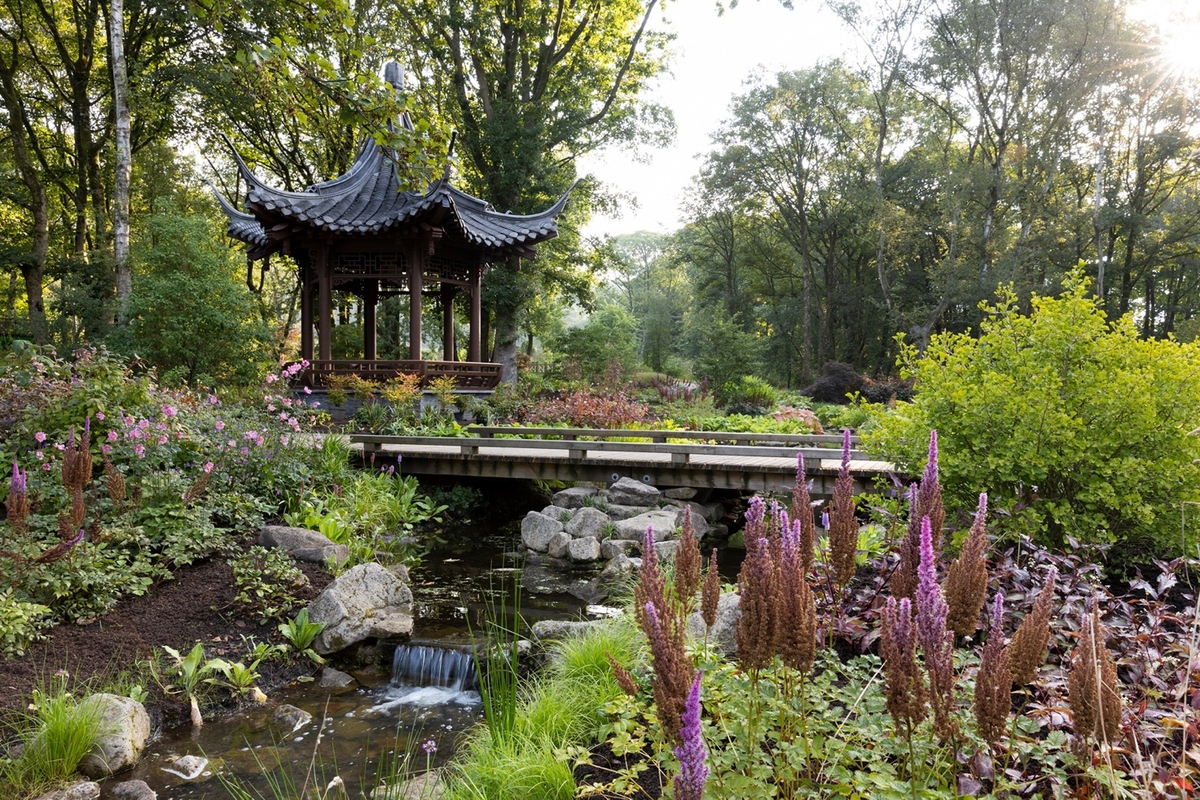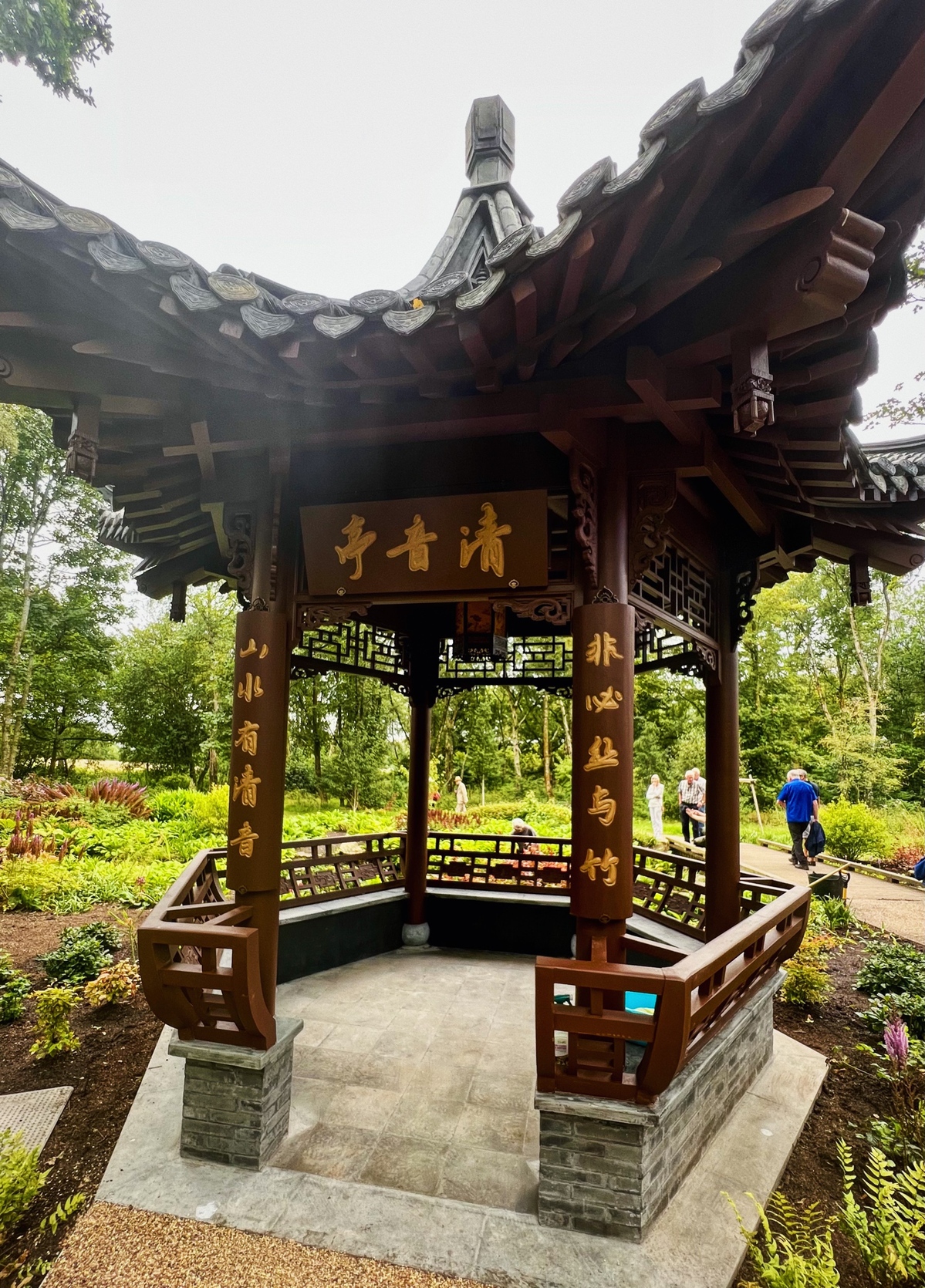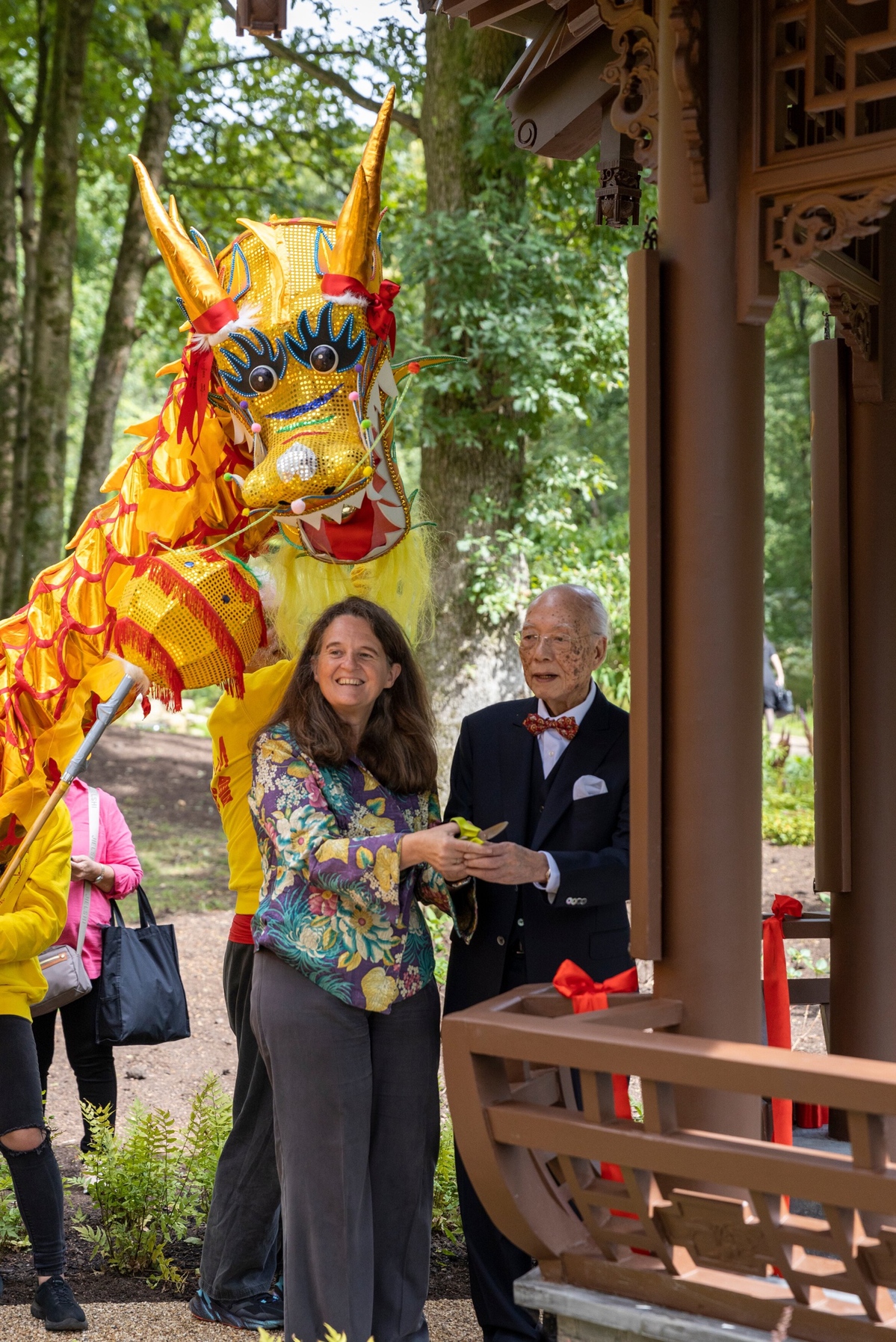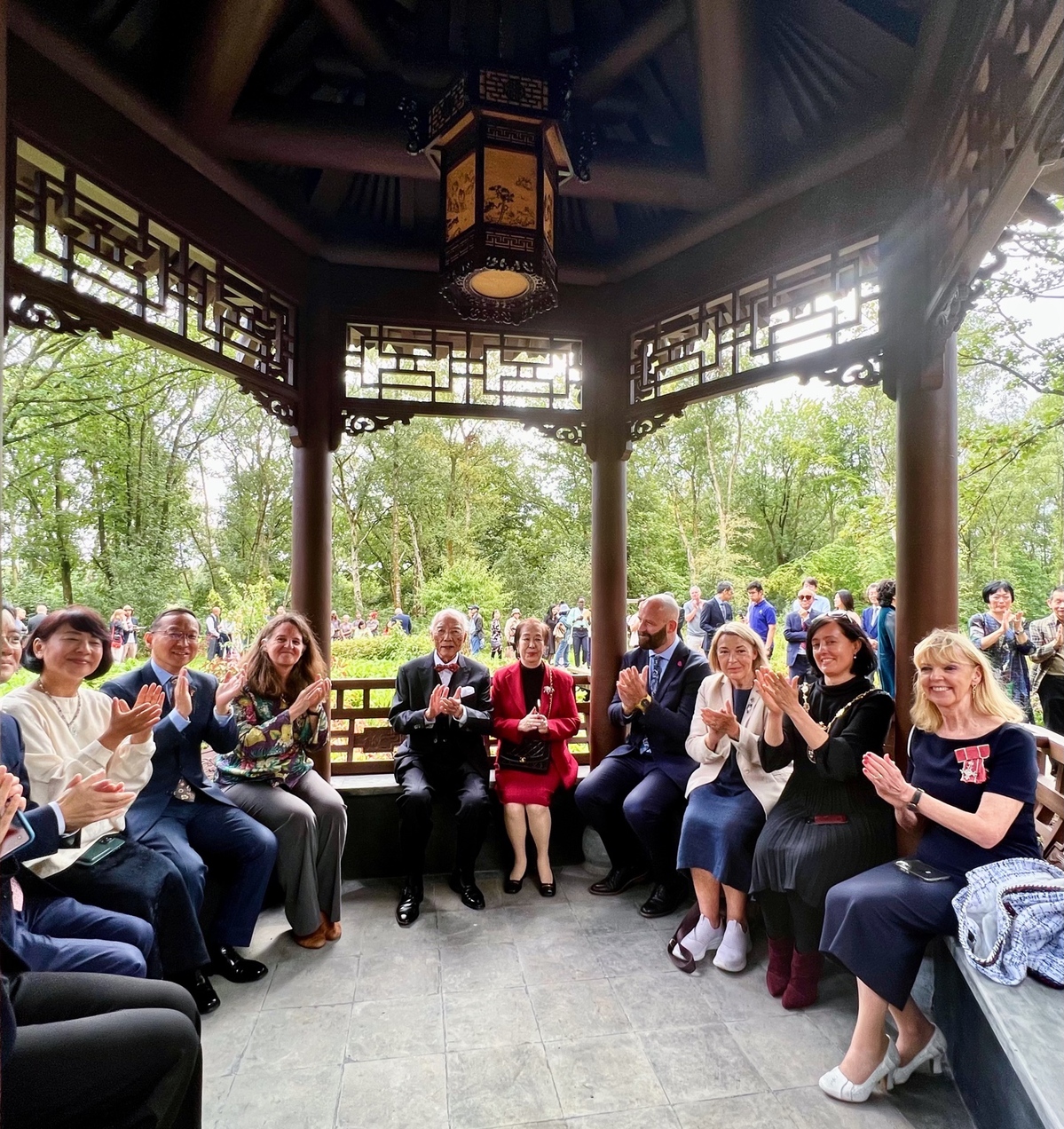New Chinese music pavilion enchants UK garden


A new authentically built Chinese-style building, named the Qing Yin Pavilion, was unveiled on Monday at the Royal Horticultural Society's Garden Bridgewater, a public display garden located in Salford, Greater Manchester, England.
The name Qing Yin refers to bright and clear music. Carving on the pavilion reads: "Why must exquisite music come from stringed and bamboo instruments? Clear sounds echoing between mountains and rivers are more moving."
The wooden hexagonal pavilion was constructed by seven artisans from the Yangzhou Classical Garden Construction Company, using traditional Chinese craft techniques, materials and skills. The structural frame was made predominantly from Chinese fir and stone, together with brick and tiles fired by Chinese kilns.

The music pavilion is expected to be a focal point in the Chinese Streamside Garden, a horticultural fusion between China and the United Kingdom, where elements of a classical Chinese garden are carefully integrated into the British woodland. Visitors can follow the footpath surrounded by Chinese native plants, stacked rocks and a gurgling stream, appreciating a miniaturized Chinese mountain scene.
Both the pavilion and the garden represent a collaborative effort involving the Royal Horticultural Society, or RHS, the Yangzhou Classical Garden Construction Company, the China Flower Association and the local Chinese community, which has donated 1.8 million pounds ($2.2 million) to the RHS.
"It is the first time that the Chinese community has worked so closely and successfully with the mainstream cultural institution," said Gerry Yeung, executive chair of the Chinese Streamside Garden Founding and Working Committee.

Yeung recalled that the initial concept of introducing a classical Chinese structure amidst the UK landscape could be traced back to 2018, when he and Lee Kai Hung, chair of the committee, began discussing the project, raising the necessary funds, and working to turn their vision into a reality.
He said: "We thank Dr Lee for his vision and generosity which enables this international, cross-cultural, and collaborative project between the UK and China, between RHS and China Flower Association, between the City of Salford and Yangzhou."
Yeung revealed that three additional pavilions are set to follow by 2026, eventually forming the heart of the Yangzhou Scholar's Garden; four interlinked pavilions, each representing music, chess, calligraphy and painting respectively – all of which are considered essential artistic talents for ancient Chinese scholars.
Further horticultural developments are planned that aim to create 11 distinct garden spaces over a seven-acre area, including a bambusarium.
Tang Rui, consul general of the Chinese Consulate General in Manchester, emphasized that the philosophies behind the Chinese gardening art, which pursue a sense of harmony, continue to guide China's development to this day, with the idea of ecological civilization being incorporated into the country's overall development strategy.
"The highest pursuit of a traditional Chinese garden is to achieve harmony between human creation and natural beauty, aiming for a state of unity between heaven and humanity, where external and internal align, and tranquility is attained," said Tang.
He said he hoped that the Chinese Streamside Garden could provide a window for visitors across the world to appreciate Chinese culture, thus injecting sustained energy into Sino-British exchanges.
Marcus Chilton-Jones, curator of RHS Garden Bridgewater, said the Chinese Streamside Garden celebrated the strong horticultural links between the two countries.

According to Chilton-Jones, China has historically made a significant contribution to British horticulture through the introduction and development of Chinese native species, especially during the 19th and early 20th centuries, when plant hunters discovered a plethora of varieties from China, transported them to the UK, and subsequently began to influence local gardening traditions.
The RHS aims to build a genuine ethnobotanical garden, which not only illustrates the authenticity of Chinese horticulture but also showcases a fusion of Sino-British collaboration, he said.
"The Scholar's Garden, as an entity, is 100 percent bonafide Chinese that does not have a Western input at all. That has been thought up, cooked up, decided, created, designed by the Chinese team. The point of interface is how it integrates, harmonizes and nestles within the UK landscape. And that is where we have worked together in terms of tweaking and defining the boundaries," said Chilton-Jones.
The curator said he hoped that the Chinese Streamside Garden, when completed, could serve as a piece of theatre. Starting from the southern side, visitors could first experience a blend of Chinese and British plants, as with their similar forms, colors, and textures, these plants harmonize well with each other. "Where the magic happens is at the beating heart of the place, the Scholar's Garden, which is overtly Chinese in every way."
For Tanya Burch, deputy ceremonial mayor of Salford, the garden and the music pavilion can symbolize a new era between China and the UK.
"We hope that what has been created here, this beautiful song that is sung by the great nation of China and the United Kingdom will continue to ring to unite us," she said. "May this song ring to bring us closer together, make us stronger and make us complement each other, rather than confront and pick what we differ about."
"May this song continue ringing for the generations to come."

































